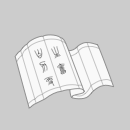
汉语世界(2022年第6期) 《汉语世界》杂志社 编
¥ 26 6.7折 ¥ 39 全新
库存10件
北京朝阳
认证卖家担保交易快速发货售后保障
作者《汉语世界》杂志社
出版社商务印书馆
ISBN9787100217095
出版时间2023-01
装帧平装
定价39元
上书时间2023-04-18
- 最新上架
商品详情
- 品相描述:全新
- 商品描述
-
内容简介:
2022 ISSUE 6
The Land Issue
China’s construction boom has come to the countryside. In this issue, we investigate the complicated repercussions for land rights. Elsewhere, we examine the legacy of corporal punishment, reveal the secret behind a booming milk tea brand, explore China’s “outsider art” community, discover forgotten relics, and much more.
过去二十余年,我国乡村迎来了“建设热潮”,小洋楼、特色民宿和农家乐等如雨后春笋,让乡村面貌焕然一新,然而随之而来,邻里、个人与集体,以及人与自然之间的冲突也在升级。同时,因出嫁而失去原有土地权益的乡村女性正在努力打破陈规,争取平等权利。乡村土地将“权”归何处?
封面故事:乡村土地:权利与冲突
COVER STORY 封面故事
Promised Land
乡村土地:权利与冲突
The term “building boom” is synonymous with China’s rapidly growing cities. But villages are not immune either from construction frenzies, nor the frustrations that come with them. Rules on the size, style, and use of homes have bred disputes, while “agritainment” projects raise questions as to who really benefits from the boom. Meanwhile, many married women are fighting to retain land rights that they are guaranteed by law, but lose due to still-prevalent sexist notions.
Feature Stories 主题故事
Tough Love
体罚教育:以爱为名义的暴力
China has revised its laws on violence against minors, but corporal punishment remains in a legal and moral gray area, with many in society accepting it because it was how they were raised. Our writer takes a deeply personal look into the debate on physical discipline, and how she reconciles her own childhood experiences of it.
Memory Lane 那些年
Pumping Iron
二七健身房和撸铁的大爷们
The Erqi Locomotive Factory was once Beijing’s second-largest industrial powerhouse, but economic reforms left its retired workers directionless. Today, they gather at a gym converted from a bike shed to work out and socialize, forging a new community (plus exercise equipment) with their own hands.
Portraits 人物
The Relic Hunter
民间“遗迹猎人”
Studding the map on Yang Fan’s phone are thousands of pins marking out-of-the-way historic sites he has visited across China. An amateur culture conservationist, Yang is on a one-man mission to document China’s countless lesser-known cultural relics before they disappear.
Kaleidoscope 镜像中国
‘Most China’ Photo Competition
“最中国”摄影大赛入围作品揭晓
Our judges have voted: Here are the finalists and winners from our “Most China” photo contest, representing what our panel of award-winning photographers and social media KOLs think best capture the country we live in, work in, or read about. From village puppet plays to pets in the city, traditional paper-making to a series just on chopsticks, we hope these images make us all see China in a new way.
Dragon’s Digest 三味书屋
Liberation Day
韩今谅的短篇小说《解封日》
It’s only a matter of time before Covid-19 makes its way into the literature of our time—and in this short story, screenwriter Han Jinliang presents a true-to-life portrait of relationships and morals that undergo transformation under repeated lockdowns in an overseas Chinese immigrant community.
Gallery 水墨丹青
Outside Looking In
素人艺术“入流”之争
Entering China’s art world can be a daunting task for those without an art degree or a professional network. But as “outsider art,” a category of works by non-establishment artists without formal training, gains attention in international auction houses, Chinese curators, artists, and even mental health workers see new possibilities for self-expression.
Made in China 中国制造
Land of Milk Tea and Honey
蜜雪冰城:饮品店的草根逆袭
With 3.5 billion drinks sold last year, Mixue Bingcheng is the biggest milk tea brand you’ve never heard of. The 20,000-store chain started by two brothers from rural Henan has conquered the market with social media savvy, focus on China’s “lower-tier” cities, and a thrifty business model proving popular with consumers in a slowing economy.
Chi Le Ma 吃了吗
A Canny Treat
水果罐头沉浮录
During 2022’s Covid lockdowns, canned foods made a comeback—but some parts of China like the Northeast never lost their taste for these preserved treats. We look back on how cans evolved from an imported luxury and fever cure to a suspected health hazard, and discover a few unique food items that can be canned in China.
On the Road 在路上
A Wild Ride to Xanadu
一代王朝两座都城之间的时空之旅
The Mongol Yuan dynasty ruled northern China for a relatively short period in the 13th and 14th centuries, and left few souvenirs behind. One important relic, though, is Shangdu, Kublai Khan’s old “northern capital” in the grasslands north of Beijing. Our writer takes a motorbike race against time to find the ruins of this city which, under the name “Xanadu,” enraptured centuries of travelers and writers from Marco Polo to Samuel Taylor Coleridge.
Saving China 美丽中国
Lights Off
当灯光无处不在,光明成了危害
Wasteful night lighting has long been used by Chinese cities to showcase prosperity, leading light pollution levels to increase 100-fold in the last 20 years in some places. The past summer’s hydropower shortage, plus growing awareness of artificial lighting’s harm to humans and wildlife, may finally convince China to turn off the lights.
WANT MORE LIKE THIS?
You can find more written, visual, and audio content on our website, theworldofchinese.com, which is updated daily with news, opinion, analysis, language lessons, and more!
主题故事:体罚教育:以爱为名的暴力
那些年:二七健身房和撸铁的大爷们
人物:民间“遗迹猎人”
镜像中国:“最中国”摄影大赛入围作品揭晓
水墨丹青:素人艺术“入流”之争
中国制造:蜜雪冰城:饮品店的草根逆袭
美丽中国:当灯光成了危害
社交汉语:婚礼成社交修罗场,从官宣到礼成
小说、艺术、语言……从国际视角欣赏中国文化,用地道英文讲述中国故事。有温情,有幽默,有新观点,有真态度……从封面到封底,精彩内容不间断!
— 没有更多了 —












以下为对购买帮助不大的评价